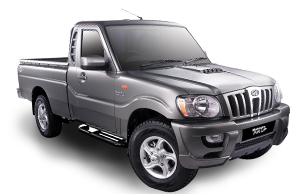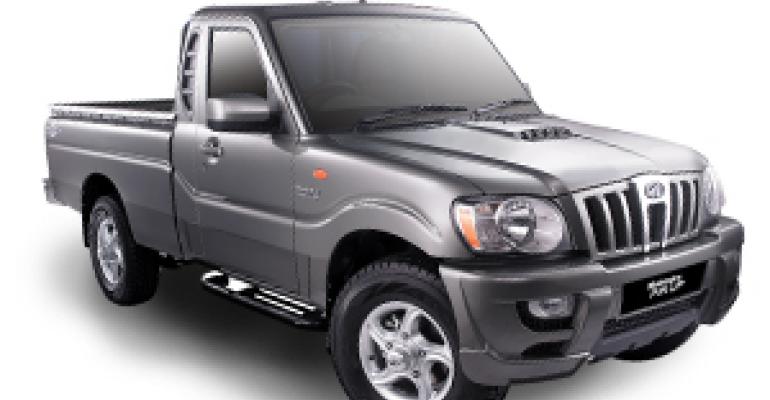
Waiting to buy a Mahindra & Mahindra pickup in the U.S.? Don’t hold your breath.
Against a backdrop of discord between Mahindra and importer Global Vehicles U.S.A., the U.S. Environmental Protection Agency has all but slammed the door on the Indian auto maker’s small diesel-powered truck, WardsAuto learns.
EPA spokeswoman Catherine Milbourn says the Mahindra pickups received federal emissions certification for model-year ’11 vehhicles, but that approval expires at year’s end.
And the EPA “has not received, nor has Mahindra applied for, a 2012 model-year certificate,” Milbourn adds.
Meanwhile, the National Highway Traffic Safety Admin. says “Mahindra & Mahindra has identified itself to NHTSA as a vehicle manufacturer and submitted the necessary information to sell its vehicles in the U.S.,” but adds, “the agency is not aware of the company’s current timing or plans for exporting vehicles for sale in the U.S.”
Repeated attempts by WardsAuto to contact Mahindra and Global Vehicles went unanswered, and a source once closely tied to Global Vehicles says the company has ceased operations.
Alpharetta, GA-based Global Vehicles CEO John Perez last year told WardsAuto his company was in a legal dispute over import rights to the U.S.-spec Mahindra TR20 and TR40 small pickups, which reportedly have a towing capacity of 5,000 lbs. (2,268 kg) and a payload of 2,765 lbs. (1,254 kg).
Powered by 2.2L 4-cyl. diesel engines, the pickups were expected to arrive in the U.S. in 2008, Perez said. Mahindra then pushed the date to September 2010, before saying the contract with Global Vehicles had expired, forcing Perez to seek a resolution through legal action.

The last update from Global Vehicles states the case had landed in a London court, considered a neutral site for settling the dispute.
In its complaint, Global Vehicles asks the court to prohibit Mahindra from distributing vehicles through any other company or contracting with U.S. dealers directly.
Shortly after the lawsuit was filed, Mahindra issued a release saying it viewed Global Vehicle’s position as “PR theatrics,” while calling the lawsuit unnecessary.
“This is Global Vehicles’ continued attempt to manipulate the press to damage Mahindra’s reputation,” the auto maker said.
Perez responded by alleging Mahindra never planned to honor the contract.
“They’ve done it in South Africa, Australia and Italy,” he said. “They signed up distributors, let them set up (the distribution channel) and then took over. Big auto companies have ways to squeeze small distributors like us out.”
In a statement, Mahindra did not directly address Global Vehicles’ allegations, but did say it was seeking another avenue to bring its pickups to the U.S.
Since then there has been silence from both sides.
But some of the 347 U.S. dealers, including a few who paid up to $200,000 for distribution rights, are holding out hope that Global Vehicles’ $35 million order for the trucks eventually will be filled.
“All we know is that Mahindra and Global Vehicles are in an arbitration hearing in London to determine whether Global will be the distributor of the trucks,” says John Pearson, president of Zionsville, IN-based Pearson Ford.
“We are assuming that there will be no determination of the distribution of the trucks until that is resolved,” he adds.



